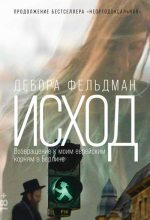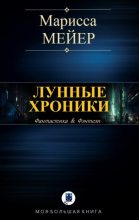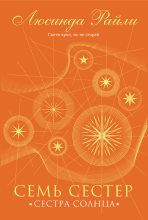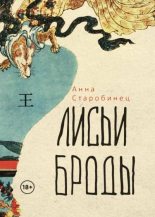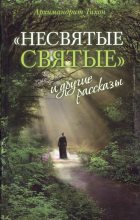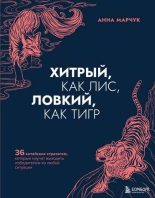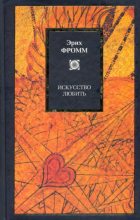- 1
- 2
- 3
- 4
- 5
- . . .
- последняя (50) »
Winnie-the-Pooh sat down at the foot of the tree (Винни-Пух сел у подножия дерева), put his head between his paws and began to think (положил /свою/ голову между своих лап = обхватил голову лапами и начал думать; to put — класть).
large [lRG], loud [laud], paw [pL]
One day when he was out walking, he came to an open place in the middle of the forest, and in the middle of this place was a large oak-tree, and, from the top of the tree, there came a loud buzzing-noise.
Winnie-the-Pooh sat down at the foot of the tree, put his head between his paws and began to think.
First of all he said to himself: “That buzzing-noise means something (прежде всего он сказал себе: этот жужжащий шум что-то означает). You don't get a buzzing-noise like that (ты не создаешь = издаешь такой жужжащий шум; like that — такой), just buzzing and buzzing, without its meaning something (просто жужжание и жужжание = просто жужжишь и жужжишь без того, чтобы это что-то значило = бессмысленно). If there's a buzzing-noise, somebody's making a buzzing-noise (если есть жужжащий шум, кто-то создает жужжащий шум = если есть жужжание, /то/ кто-то жужжит), and the only reason for making a buzzing-noise that I know of is because you're a bee (а единственная причина, чтобы создавать жужжащий шум = чтобы жужжать, о который я знаю, /это/ потому что ты пчела).”
something ['sAmTIN], reason ['rJzn], bee [bJ]
First of all he said to himself: “That buzzing-noise means something. You don't get a buzzing-noise like that, just buzzing and buzzing, without its meaning something. If there's a buzzing-noise, somebody's making a buzzing-noise, and the only reason for making a buzzing-noise that I know of is because you're a bee.”
Then he thought another long time, and said (затем он думал еще долгое время и сказал): “And the only reason for being a bee that I know of is making honey (а единственная причина, /чтобы/ быть пчелой: «бытие пчелой», которую я знаю, — это делать мед: «делание меда»).”
And then he got up, and said (и потом он встал и сказал): “And the only reason for making honey is so as I can eat it (а единственная причина, /чтобы/ делать мед — это чтобы я мог его есть).” So he began to climb the tree (поэтому он начал лезть на дерево = полез на дерево; to begin — начинать).
He climbed and he climbed and he climbed (он лез и /он/ лез, и /он/ лез) and as he climbed he sang a little song to himself (а пока он лез, он пел себе песенку: «маленькую песню»). It went like this (она звучала так; to go — зд. звучать, гласить; like this — так):
thought [TLt], honey ['hAnI], climb [klaIm]
Then he thought another long time, and said: “And the only reason for being a bee that I know of is making honey.”
And then he got up, and said: “And the only reason for making honey is so as I can eat it.” So he began to climb the tree
He climbed and he climbed and he climbed and as he climbed he sang a little song to himself. It went like this:
Isn't it funny (разве /это/ не забавно)
How a bear likes honey (как медведь любит мед)?
Buzz! Buzz! Buzz (ж-ж-ж)!
I wonder why he does (интересно: «я интересуюсь», почему он делает = любит /его/; to wonder — интересоваться, желать знать)?
how [hau], bear [bFq], wonder ['wAndq]
Isn't it funny
How a bear likes honey?
Buzz! Buzz! Buzz!
I wonder why he does?
Then he climbed a little further (затем он залез немного дальше)... and a little further (и /еще/ немного дальше)... and then just a little further (а потом /еще/ лишь немного = чуть-чуть дальше). By that time he had thought of another song (к этому времени он придумал еще одну песню).
further ['fWDq], little [lItl], song [sON]
Then he climbed a little further... and a little further... and then just a little further. By that time he had thought of another song.
It's a very funny thought that, if Bears were Bees (/это/ очень забавная мысль, если бы Медведи были Пчелами),
They'd build their nests at the bottom of trees (они бы строили свои гнезда в нижней части деревьев).
And that being so (if the Bees were Bears) (и если бы было так (если бы Пчелы были Медведями)),
We shouldn't have to climb up all these stairs (мы не должны были бы = нам не надо было бы лазить вверх по этим лестницам / трапам).
Забавная мысль, чтоб медведь был пчелой[11].
Селился б пониже медвежий весь рой.
Не нужно было б лапам
Влезать по этим трапам.
thought [TLt], were [wW], build [bIld]
It's a very funny thought that, if Bears were Bees,
They'd build their nests at the bottom of trees.
And that being so (if the Bees were Bears),
We shouldn't have to climb up all these stairs.
He was getting rather tired by this time (он довольно устал к этому времени; to get tired — устать), so that is why he sang a Complaining Song (вот почему он запел Жаловательную Песню = Жалелку / Хныкалку; to sing — петь). He was nearly there now (он был почти на месте: «там» теперь), and if he just stood on that branch (и если бы он только стал бы на ту ветку; to stand — стоять, встать)...
Crack (хрусь)!
“Oh, help!” said Pooh (о, помогите! — сказал Пух), as he dropped ten feet on the branch below him (когда он упал на десять футов[12] на ветку под ним).
“If only I hadn't —“he said (если бы только я не — сказал он), as he bounced twenty feet on to the next branch (когда он подпрыгнул на следующей ветке на двадцать футов /ниже/).
“You see, what I meant to do,” he explained (видите ли, что я намеревался = хотел сделать — объяснил он; to mean — намереваться, иметь в виду), as he turned head-over-heels (когда он перевернулся вверх тормашками: «голова-через-пятки»), and crashed on to another branch thirty feet below (и с грохотом обрушился на другую ветку на тридцать футов[13] ниже), “what I meant to do — (что я хотел сделать)”
rather ['rRDq], branch [brRnC], meant [ment]
He was getting rather tired by this time, so that is why he sang a Complaining Song. He was nearly there now, and if he just stood on that branch...
Crack!
“Oh, help!” said Pooh, as he dropped ten feet on the branch below him.
“If only I hadn't —“he said, as he bounced twenty feet on to the next branch.
“You see, what I meant to do,” he explained, as he turned head-over-heels, and crashed on to another branch thirty feet below, “what I meant to do —”
“Of course, it was rather — “he admitted (конечно, это было довольно… — признал он), as he slithered very quickly through the next six branches (когда он пронесся очень быстро через следующие шесть веток; to slither — проскользнуть).
“It all comes, I suppose,” he decided (это все происходит, я полагаю — решил он), as he said good-bye to the last branch (когда он попрощался с последней веткой), spun round three times (перекувырнулся три раза; to spin — крутить/ся/, вертеть/ся/), and flew gracefully into a gorse-bush (и влетел грациозно в куст утесника[14]), “it all comes of liking honey so much (это все происходит из великой любви к меду: «из любления меда так много»). Oh, help (ай, помогите)!”
He crawled out of the gorse-bush (он выполз из утесника), brushed the prickles from his nose (смахнул = вытащил колючки из своего носа; to brush — чистить щеткой; выбивать /ковер, пальто и т.д./; смахивать), and began to think again (и начал снова думать). And the first person he thought of was Christopher Robin (и первая личность, о которой = и первым, о ком он подумал, был Кристофер Робин).
come [kAm], flew [flu:], crawl [krLl]
“Of course, it was rather — “he admitted, as he slithered very quickly through the next six branches.
“It all comes, I suppose,” he decided, as he said good-bye to the last branch, spun round three times, and flew gracefully into a gorse-bush, “it all comes of liking honey so much. Oh, help!”
He crawled out of the gorse-bush, brushed the prickles from his nose, and began to think again. And the first person he thought of was Christopher Robin.
(“Was that me (это был я)?” said Christopher Robin in an awed voice (сказал = спросил Кристофер Робин голосом полным
- 1
- 2
- 3
- 4
- 5
- . . .
- последняя (50) »
